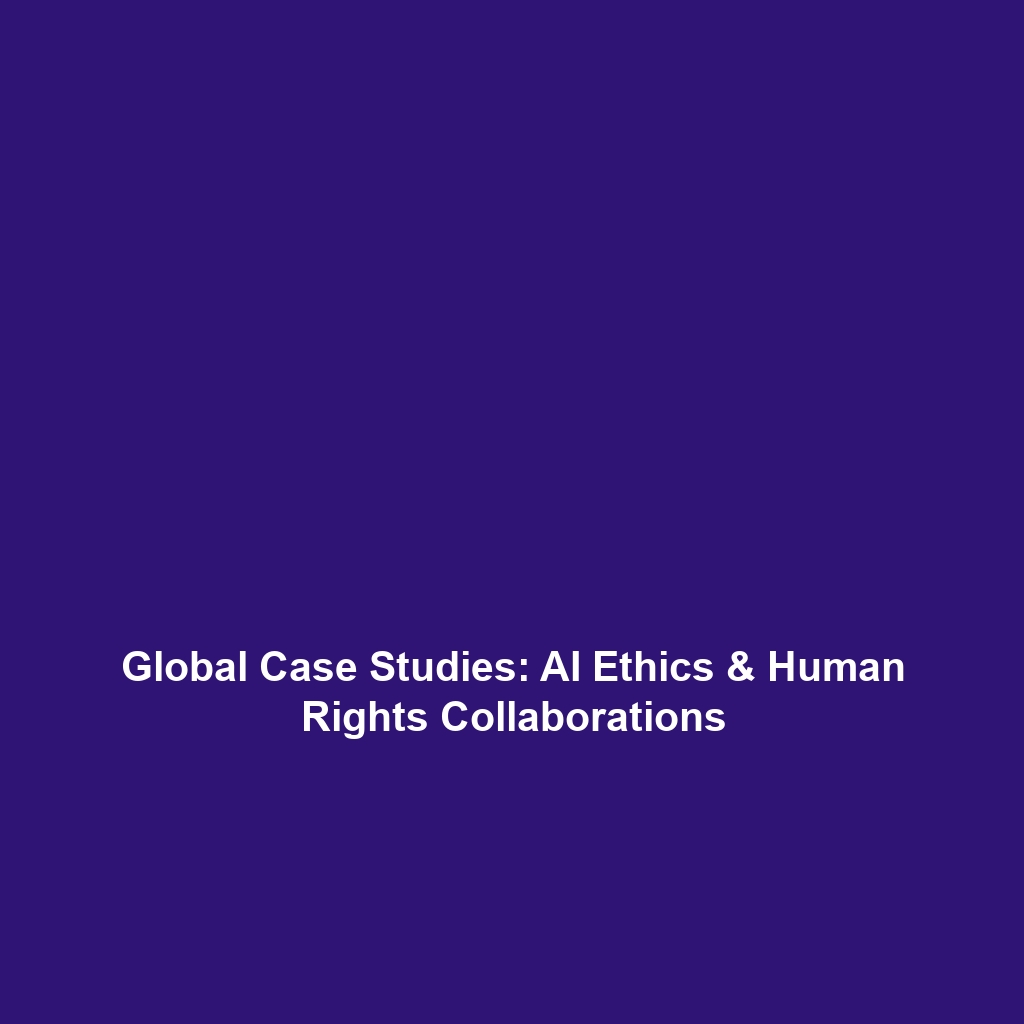Case Studies of Successful International Collaborations in Regulating AI’s Impact on Human Rights
In an era where artificial intelligence (AI) profoundly influences human rights, understanding the case studies of successful international collaborations becomes crucial. These case studies not only highlight the concerted efforts across borders but also underscore the importance of AI ethics in framing regulations that protect human rights. As AI technologies evolve, so too does the need for comprehensive frameworks that address potential ethical dilemmas and human rights issues. This article delves into significant collaborations that showcase effective governance in AI’s multi-faceted landscape.
Key Concepts in International AI Governance
The regulation of AI and its impact on human rights involves several core concepts and principles:
- Human Rights Framework: Establishes essential protections that AI systems must respect.
- Transparency: Demands that AI algorithms operate without obfuscation, allowing scrutiny and accountability.
- Inclusive Stakeholder Engagement: Involves collaboration among governments, civil society, and private sectors to build comprehensive regulations.
- Preventive Measures: Focus on mitigating risks associated with AI technology, particularly in vulnerable populations.
These principles form the bedrock of successful collaborations aimed at ensuring that AI serves humanity without infringing on fundamental rights.
Applications and Real-World Uses
Exploring how successful international collaborations have been utilized in regulating AI’s impact on human rights reveals several practical applications:
- Global Partnerships: Initiatives like the Global Partnership on AI (GPAI) work to promote responsible AI development.
- Policy Development: Collaborations among nations to draft cohesive AI regulations that conform to human rights standards.
- Research Cooperation: Joint investigations into the influence of AI on societal structures and individual freedoms.
These applications underscore the integral role of collaboration in shaping ethical AI practices that safeguard human rights.
Current Challenges in AI Regulation
Despite notable advancements, several challenges persist when studying or applying successful international collaborations:
- Regulatory Fragmentation: Different countries adopting varying standards complicates global compliance.
- Technical Complexity: The intricate nature of AI systems makes oversight challenging.
- Resource Limitations: Many nations face constraints in expertise and funding to implement AI ethics frameworks.
- Cultural Differences: Diverse interpretations of human rights can lead to discrepancies in regulatory approaches.
Addressing these challenges is essential for fostering a cohesive framework for AI regulation.
Future Research and Innovations
As the discourse around AI ethics evolves, ongoing research and potential innovations are poised to further influence the field:
- Next-Gen AI Tools: Development of AI systems that inherently account for ethical implications.
- Adaptive Regulatory Frameworks: Innovations in AI governance that respond dynamically to technological advancements.
- Cross-National Learning Models: Enhanced sharing of best practices among nations to bolster effective AI regulation.
These innovations point toward a future where AI and human rights considerations are harmoniously integrated.
Conclusion
In conclusion, the examination of case studies surrounding international collaborations is invaluable in understanding the ongoing efforts to regulate AI’s impact on human rights. As AI continues to permeate various aspects of life, a strong emphasis on AI ethics is critical in ensuring that technological advancements benefit humanity while safeguarding individual rights. For more in-depth analysis on AI ethics and human rights, consider exploring related topics on this website.

Leave a Reply